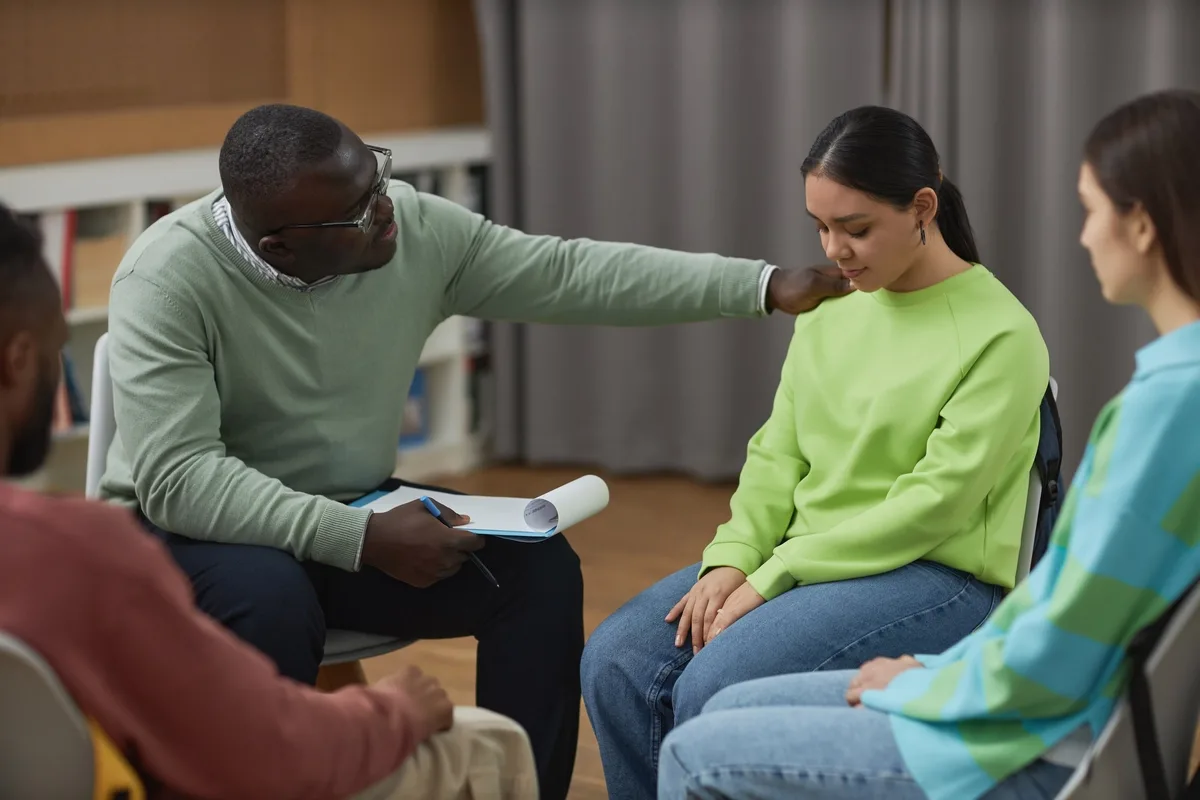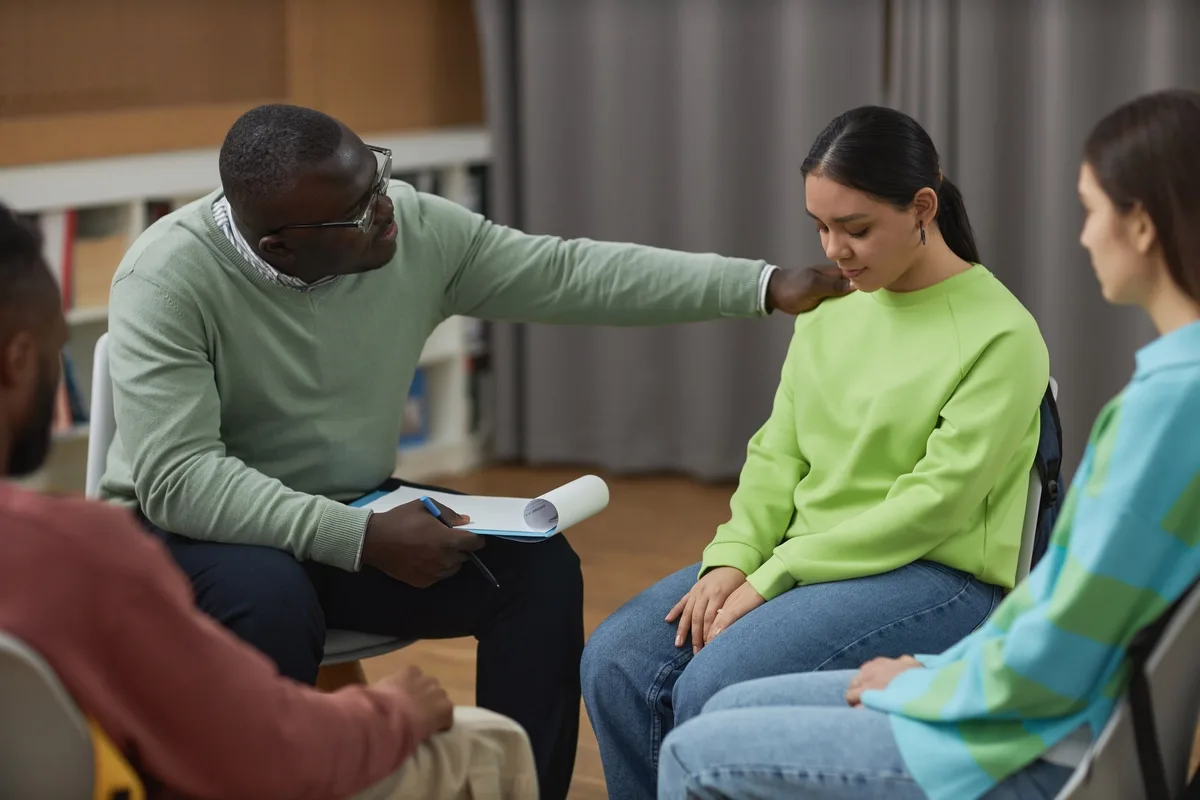24/7 Helpline:
(866) 899-221924/7 Helpline:
(866) 899-2219
Learn more about PTSD Treatment centers in Scott City
PTSD Treatment in Other Cities

Other Insurance Options

GEHA

Absolute Total Care

Horizon Healthcare Service

Health Net

Oxford

American Behavioral

Magellan Health

Holman Group

Coventry Health Care

Multiplan

United Health Care

AllWell

State Farm

Magellan

Optum

BlueShield

BHS | Behavioral Health Systems

Optima

Choice Care Network

Medical Mutual of Ohio



New Vision Counseling
New Vision Counseling, located in Sikeston, Missouri, offers behavioral health care and mental healt...

Gibson Recovery Center
Gibson Recovery Center is a non-profit rehab located in Sikeston, Missouri. Gibson Recovery Center s...

Awakenings
Awakenings is a private rehab located in Kelso, Washington. Awakenings specializes in the treatment ...


































Bootheel Counseling Services
Bootheel Counseling Services offers outpatient counseling services for individuals or families strug...

Fair Havens Recovery Center
Fair Havens Recovery Center is a private rehab located in Sikeston, Missouri. Fair Havens Recovery C...

Kelso Treatment Solutions
Kelso Treatment Solutions is a private rehab located in Kelso, Washington. Kelso Treatment Solutions...










































